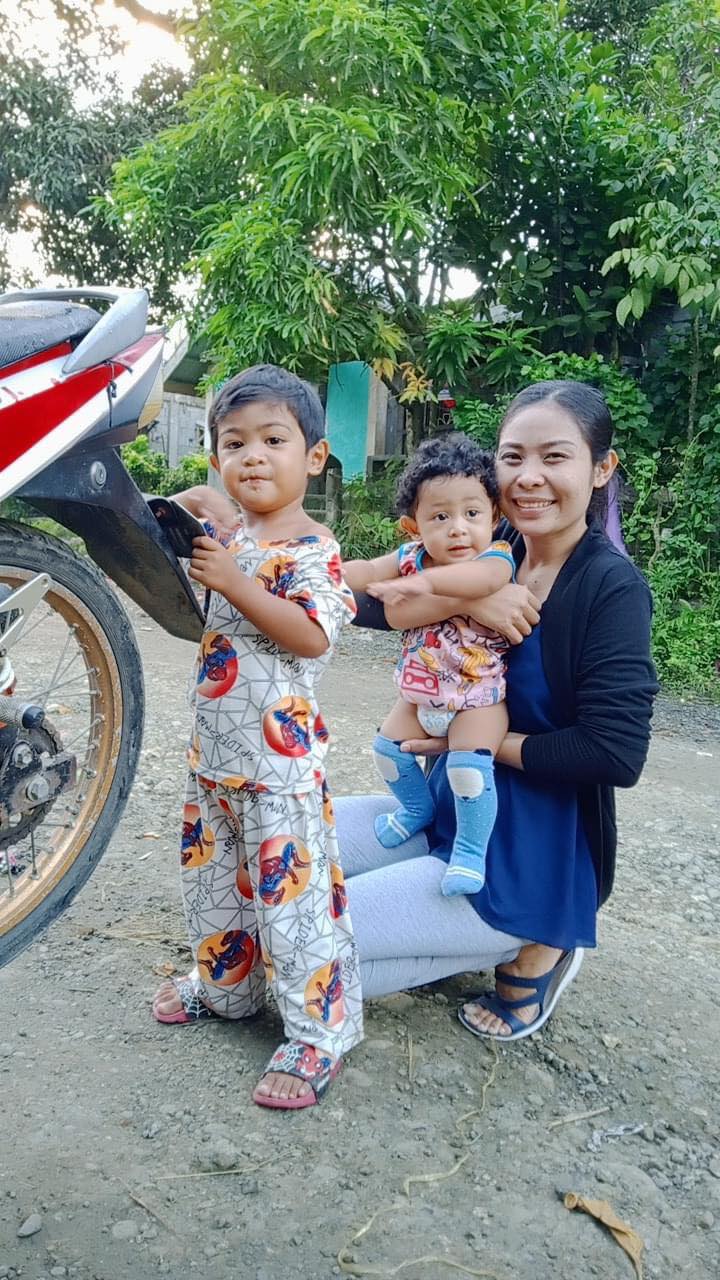Angelica Remegio is desperate. She is alone with her two young children while her partner is at sea on a Chinese fishing vessel. He's been away for four months. In all that time, his family has not seen him – nor a single peso of his pay, a portion of which is supposed to be sent to them by Angelica’s partner’s ‘manning agent’.
We have two kids who need milk and diapers and other basic items,” she told the International Transport Workers’ Federation.
“But we have not received an allotment and it’s four months since he joined the vessel. I need money for my 10-month-old baby and my three-year-old boy.”

Andy Umbania Bolo joined the MV Qing Yuan Yu 008 (IMO: 8662646) on 9 September 2021. He was placed there by Able Maritime Seafarers Inc. As a manning agency, Able Maritime is supposed to take care of the seafarers it represents – in addition to a duty to ensure a proportion of the seafarers’ pay reaches their families while they’re on board.
Families and seafarers’ unions say Angelica’s case is just one of many where the Able Maritime has let people down.
Agency’s licence remains in place
The Philippines is the biggest provider of international seafarers in the world. According to the Drewry Report for 2019/20, Filipinos made up about 1 in 7 (or 14 percent) of the global seafaring workforce. That’s around 220,000 workers, sending back billions of US dollars to their families and wider communities.
So vital are Filipino seafarers to the nation’s economy and people, that Philippines President Rodrigo Roa Duterte has ordered health officials to prioritise the workers to receive doses of the country’s limited supply of US-made vaccines, such as Pfizer and Johnson and Johnson/Jansen. So-called ‘Western’ vaccines are required by a growing list of maritime employers and governments for visiting or transiting seafarers. The country’s leader also recently delivered a presidential message to the Seafarers’ Rights International conference emphasising the importance of protecting seafarers.
Filipino seafarers are clearly valued. But who is supposed to protect these seafarers in practice? The Philippine Overseas Employment Agency (POEA) is the authority tasked with regulating manning agencies, the companies who are tasked with guarding the wages, welfare and conditions of overseas-employed seafarers. According to its own website, the POEA's vision is “excellence in governance for world-class Filipino migrant workers”. Yet, despite overwhelming evidence that Able Maritime has been failing many of the seafarers that the agency places, the POEA continues to license the company to operate as a crewing agency.
“Why does the POEA allow more and more Filipino families to suffer? Why cannot it take immediate action against Able Maritime?” asked Steve Trowsdale the ITF’s Inspectorate Coordinator. “We know of dozens of similar cases where seafarers are placed on fishing vessels by Able Maritime, but families receive no pay. How are these people expected to pay the bills, how are they supposed to survive?”

In September, the ITF published details about the case of Leslie Ann De Torres (Strike 3), the wife of a seafarer who had been unable to contact her husband for more than eight months by that time and feared for his welfare. Thanks to ITF-generated publicity, husband Jemuel Cris De Leon De Torres has been revealed to be alive, and still working on board the Chinese-flagged fishing vessel Lu Qing Yuan Yu 116 (IMO 8546270). De Torres is now expected home later this month, after the shipowner (rather than Able Maritime), insisted on his return.
The ITF’s Steve Trowsdale said Able Maritime, which placed De Torres, had obligations under the Philippines’ system to keep active tabs on the welfare and whereabouts of seafarers and fishers that it places with employers, including ensuring families could reach their loved ones.
It has been almost six months since Mrs De Torres first complained to the POEA, after receiving no response from Able Maritime. Because the regulation agency has been so slow to act, many more fishers and their families (including Angelica Remegio) have since become victims of Able Maritime. Even now, the controversial manning agent’s licence remains in place.
The evidence against Able Maritime is overwhelming
Twenty-one seafarers placed by Able Maritime with Goundar Shipping in Fiji found themselves poorly paid and facing terrible conditions. The POEA did briefly suspend Able Maritime’s licence when the agency was shown by the ITF to have switched contract terms on the seafarers upon their arrival in Fiji. However, the licence was reinstated after only two weeks and has remained in place ever since. It took many months to free the seafarers from their situation and have them return to their families. The last two victims of Goundar’s actions only got back to the Philippines in October. They immediately raised a formal complaint about Able Maritime with the POEA when they arrived.
Still Able Maritime’s licence remains in place.
Eight Filipino seafarers found themselves working vessels in the tuna fish farm industry off the coast of Malta when placed by Able Maritime with company Malta Towage. Conditions on board the vessels were well below minimum safe standards. Inspectors for the Malta port state control found 35 deficiencies against minimum standards on one of the vessels that the Filipino crew were working on. ITF officials found the seafarers were being worked to excessive hours and some were told to do work outside their normal duties, further adding to their fatigue and stress.
Some of the seafarers were helped to get home by the ITF. The POEA was well aware of their case. Still Able Maritime’s licence remained in place.
In October, the ITF Inspectorate red listed Able Maritime on the ITFShipBeSure.org crewing agency watchlist directory, with advice to seafarers to avoid taking employment through the company. It did this after a news story about Able Maritime’s behaviour generated a flood of complaints from seafarers and their families to the ITF.
Despite the ITF’s action and seafarers’ formal complaints, Able Maritime’s licence remains in place.
“The whole purpose of the POEA is to protect Filipinos working overseas from being exploited,” said the ITF’s Steve Trowsdale. “Despite all these cases where people are suffering at the hands of Able Maritime – despite the extensive and well-documented evidence that has been put to them: we are yet to see any response from the POEA, let alone the strong one that is needed.”
“We need decisive action from the POAE that makes an example of this crewing agency whose conduct is giving a bad name to the Filipino maritime industry. We need that action now.”
-
Media contact: media[at]itf.org.uk
